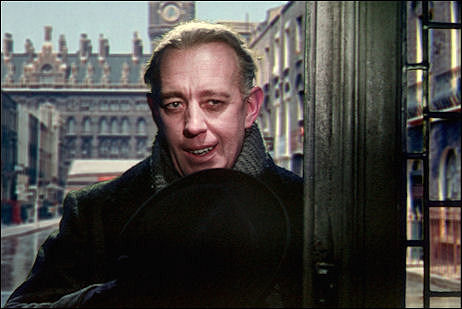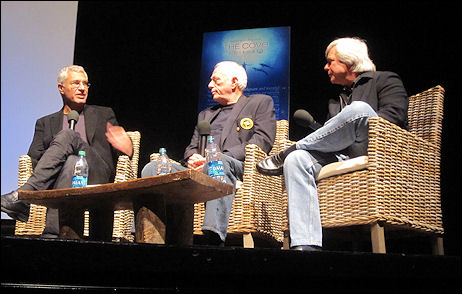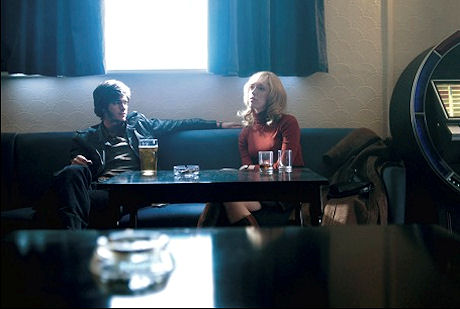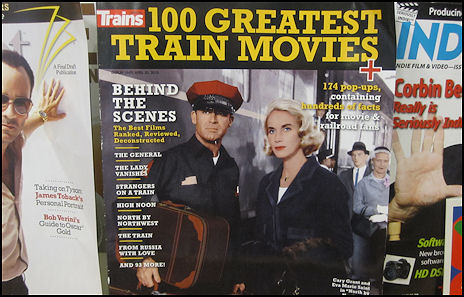Times Online DVD guy Michael Moran has written a fairly brutal pan of Joe Johnston‘s The Wolfman.
“As a late night DVD guilty pleasure with a bottle of wine and a playful disposition, it will probably make quite a few people very happy. As a 21st Century big screen experience, it’s something of a howler.
“The Wolfman opens, naturally, with a ‘boo’ sequence to give you the idea that you’re watching some sort of horror flick. After that you are necessarily treated to a big ugly lump of exposition that explains what Emily Blunt is doing there and why Benicio Del Toro is an English gentleman with an American accent.
“After that, you might expect a steadily escalating series of thrills leading to a gory climax. You would be mistaken. The Wolfman limps along as if it has a thorn in its paw.
“There’s some backstory about a dark secret in Benicio’s and dad Anthony Hopkins‘ family past which quite honestly blows the movie’s big reveal for all but the most inattentive viewers.
“The movie’s one genuinely chilling moment occurs in flashback, with an unsettlingly dreamlike scene of Benicio and his now-deceased brother being haunted by some freaky night-time homunculus. There’s a little Shining topiary tribute too, just for laughs.
“Then poor Hugo Weaving shows up as Inspector Francis Aberline, a police detective based (as everyone who has seen From Hell will already have spotted) on Frederick Abberline, the real-life head of the Jack the Ripper investigation.
“Until the film’s flabby midsection eventually morphs into a lycanthropically hairy climax Hugo drifts around the movie without a whole lot to do. Blunt does something similar while a pitchfork-wielding posse of disposable villagers slowly assemble themselves into a sort of one-stop werewolf buffet.
“If you’re sensitive about that kind of thing there’s some borderline racist dialogue about a nearby encampment of Gypsies to pass the time until we actually see a werewolf.
“The Gypsy encampment is presently laid waste by a mysterious beast. There’s one of those annoying moments that you get in horror flicks where a crowd of witnesses magically evaporates when they’re inconvenient. For that matter the grand old country house in which Hopkins lives is similarly deserted, with nary a servant to be seen except when two of them need to drive Blunt to safety in the middle of the night.
“Fans of weird Victorian lunatic asylum stuff will be pleased to hear that there’s some weird Victorian lunatic asylum stuff, with an hilarious action scene involving doctors who are so scared that they’ve forgotten how a door works, followed by a mad chase through a nicely realized late-Victorian London which rather unwisely invites comparison with the peerless An American Werewolf In London.
“What really cripples the move is that Del Toro is playing someone who has no character, just a bundle of characteristics. We know he went to America as a child, we know he’s back as a man. He seems not to have had any life between those events. There’s no pre-existing romantic involvement to prevent him getting together with his dead brother’s fianc√©, and the experience of being half-killed by a ravening werewolf seems to affect him not at all.
“Hopkins is similarly insouciant, reacting to an assortment of family tragedies with equanimity and even, apparently, playing a jolly harmonica when he has just visited his son in a ghastly lunatic asylum.
“Throw in some really very disappointing effects work — and don’t forget the film has been directed by a special effects master, with creature effects by revered werewolf supremo Rick Baker — and you know you’re in trouble.”






